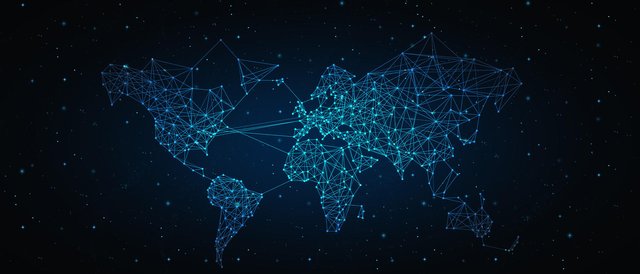What is DeFi?
In human terms, the decentralized finance, distributed finance, and programmable finance you often hear can be called DeFi.
DeFi is a kind of financial software built on the blockchain. Our traditional finance relies on the endorsement of third-party institutions or intermediaries to carry out transactions such as transfer, financial management, lending, mortgages, etc., which are complicated, time-consuming, laborious and sometimes risky. On the other hand, DeFI implements digital financial transactions through a set of codes containing cryptography. The code is open source, the result is uninterrupted and unchangeable, and the transaction is simple and low in cost.
To illustrate decentralized finance, we must first review traditional (centralized) finance.
Traditional finance mainly refers to financial activities that only have the three traditional businesses of deposits, loans and settlement. Simply put, finance is the financing of funds.
Financial institutions (Financial Institutions) refer to financial intermediaries engaged in the financial industry. They are part of the financial system. The financial industry includes banking, securities, insurance, trusts, funds and other industries.
Banks are giants in the financial industry, providing convenient payment, savings, and credit services to individuals, companies, other financial institutions, and even the government. In fact, their scale is very large, the total market value of the world's top ten banks is as high as 2 trillion US dollars. In contrast, as of the end of last year, the total market value of the entire crypto-currency-market was only about 200 billion U.S. dollars.
Banks are a key component of the financial industry. They provide deposits, withdrawals, transfers, loans and other services to enable funds to flow freely around the world. However, banks are managed by people and are subject to policy supervision, so they are vulnerable to human-related risks, such as mismanagement and corruption. The 2008 global financial crisis is a full manifestation of this type of risk.

DeFi attempts to use the emerging Internet and blockchain technology to create a better financial environment. It optimizes three key parts of the banking system:
1. Payment & Clearing
The crypto-currency that advances the DeFi movement allows you to not rely on any middleman. Your transfer transaction will be processed unconditionally, and you only need to pay a lower handling fee than the bank.
2. Inclusive finance
The World Bank estimates that as of 2017, there were 1.7 billion people without bank accounts, and more than half of them were from developing countries. It is very difficult for them to obtain banking services. Today, DeFi is here and everything becomes simple. You only need a mobile phone with Internet access to access DeFi Dapp (decentralized application) without any additional review or additional conditions.
3. More transparency
In the United States alone, there are records of over 500 bank failures. The inability of ordinary investors to fully understand the operation of financial institutions led to a series of events such as the 2008 financial crisis.
Most of the DeFi protocols built on public blockchains are open source, facilitating auditing and improving transparency. These agreements usually have decentralized governance organizations to ensure that everyone knows what is happening and that no one can make malicious decisions alone. The DeFi protocol is written as lines of code-code is the law, and it treats everyone equally. The code runs exactly the way it was written. Since the code is open source for public review, any vulnerabilities will be quickly found out.
Decentralized finance (DeFi) is a decentralized movement that enables finance, which makes ordinary people no longer rely on intermediaries and use financial services such as loans and transactions on an equal footing.
DeFi is not a single product or company, but a series of products and services that replace institutions such as banks, insurance, bonds, and money markets. DeFi Dapp aims to revolutionize traditional financial services by eliminating the need for intermediaries. However, DeFi is still very early. But over time, DeFi will surely grow rapidly and become the basic financial facility in the blockchain world.
Market friction, inaccessibility, and regulatory uncertainty are some of the main problems that plague the current financial system. Unfortunately, not everyone can enjoy the services in the current banking system-many people find it difficult to participate fairly.
The DeFi movement is to bridge these gaps so that everyone can access financial services without any form of censorship. In short, DeFi opens a huge window of opportunity and allows users to use various financial tools regardless of race, religion, age, nationality, or geography.
In the final analysis, the biggest advantage of DeFi lies in its ability to eliminate intermediaries and operate in a zero-censorship environment.